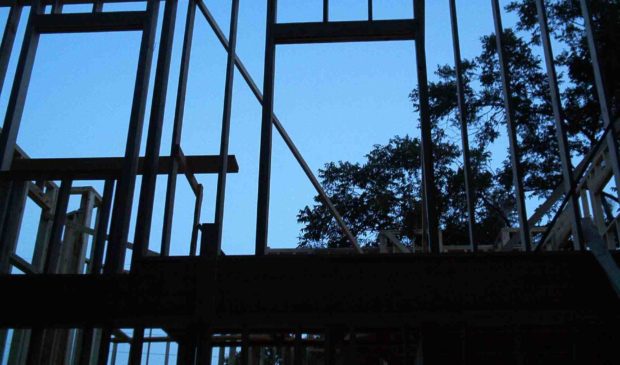Council debates the potential impact of large-scale rezoning on property taxes
Thursday, November 14, 2019 by
Ryan Thornton Some of City Council’s internal conflict over the Land Development Code may be tied to different understandings of how zoning and development affect residential property taxes.
The code rewrite lead team told Council on Tuesday that many residents are worried zoning changes will directly impact property values and result in higher taxes. But no matter the zoning, said Annick Beaudet of Austin Transportation, a lot with an existing home will continue to be valued and taxed as a homestead if the new code is adopted.
In other words, even if a single-family lot gets new entitlements to build a triplex or commercial space, it will still be taxed as a home unless it is redeveloped to a higher use. This is based on the way the Travis Central Appraisal District calculates tax value and not any feature of the draft Land Development Code.
Council Member Alison Alter agreed that zoning itself won’t impact tax value overnight, but said the process of redevelopment from added entitlements can affect nearby properties. If someone pays more for a home because they plan to redevelop it, she explained, that higher sale price factors into the value assessments of nearby homes.
Not so, said Mayor Steve Adler: If a home is sold for the explicit purpose of redeveloping to a higher use, that sale can’t be used to value other homes because the sale price correlates to the entitlements, not the home itself.
But, as Alter noted, if a home is purchased for redevelopment but plans fall through or are deferred, the appraisal district won’t know the difference.
Adler said he would agree that, if someone buys a home but never converts it to a higher or commercial use, it will look like and will be a sale for someone who wanted to use it as a home.
Council Member Jimmy Flannigan pushed back against the temptation to establish a simple causal link between zoning and property taxes. Citing his own conversations with residents worried that duplexes in their neighborhood could actually lower their property values, he summarized the situation like this: “I have started calling it Schrödinger’s appraisal: No matter what we do, your appraisal will go both up and down.”
Austin homeowners are also protected by the homestead cap and the homestead exemption. For qualifying homeowners, the cap means the assessed value of their home can’t increase more than 10 percent annually. The exemption knocks 10 percent of a home’s value off its taxable value.
Council Member Leslie Pool said the new zoning code won’t change that, but it won’t help either.
“We’re all seeing massive increases in our taxes now to the extent that we’re all seeing the 10 percent cap being reached every year,” she said. “So yeah, I suppose if you hold on to your property it’s only going to (increase) 10 percent, but it’s still 10 percent and nobody is making 10 percent every year in an increase in their wages.”
“It’s even worse for those of us who have a lot of people who bought their property centrally so that they could be located near hospitals and restaurants, maybe family, or walkable to a library, so they had pitched all of their investment into that home to age in place in that home,” she added.
Adding further nuance to the discussion, Flannigan said a higher appraisal value does not necessarily equal higher taxes. Especially now that the city would be required to conduct an election to raise tax rates more than 3.5 percent annually, he noted that “tax bill changes are really not as related to valuation changes as some folks will often say.”
Council Member Ann Kitchen requested a work session with Chief Appraiser Marya Crigler to get into the details of zoning and tax value. Failing to be honest and precise with the public about these issues, she said, risks creating more trust issues around the code rewrite.
Adler said the topic will be bookmarked for a future work session. The rewrite team will be releasing the second supplemental report on the draft land code Nov. 25. Council will hold a work session on the code Nov. 18 and a public hearing Dec. 7.
Photo by Alan made available through a Creative Commons license.
The Austin Monitor’s work is made possible by donations from the community. Though our reporting covers donors from time to time, we are careful to keep business and editorial efforts separate while maintaining transparency. A complete list of donors is available here, and our code of ethics is explained here.
You're a community leader
And we’re honored you look to us for serious, in-depth news. You know a strong community needs local and dedicated watchdog reporting. We’re here for you and that won’t change. Now will you take the powerful next step and support our nonprofit news organization?








